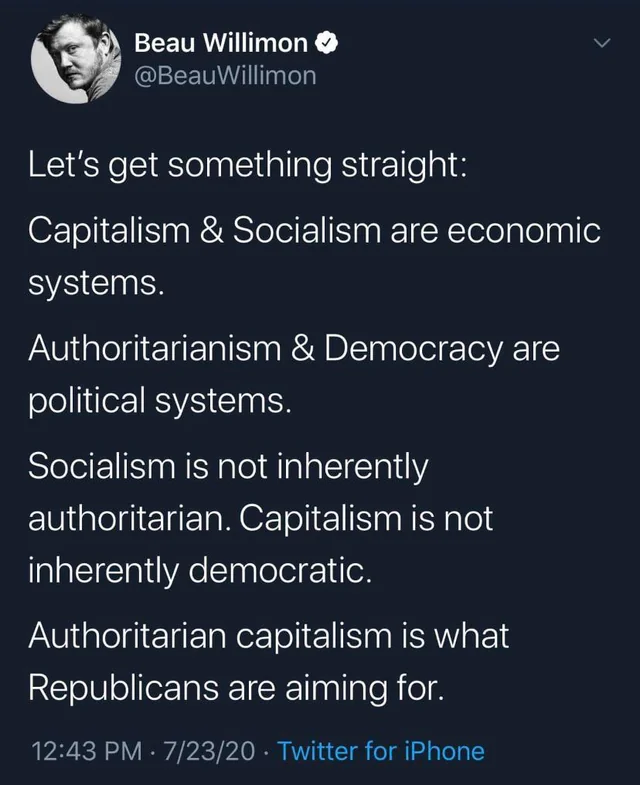Mother Jones published an article about how the Democrats are reframing a potent authoritarian radical right talking point:

The affirmative action of generational wealth. That’s a smart reframing of a longtime conservative hobby horse.
Republican politicians and right-wing media have regularly attacked programs designed to counter the generational impacts of government-sanctioned discrimination in housing, education, and veterans benefits. Now they’re targeting diversity, equity, and inclusion programs—see JD Vance’s recently introduced “Dismantle DEI Act“—and trying to brand Kamala Harris a “DEI hire.” That’s a laughable assertion. (New York Times columnist Lydia Polgreen argues that the moniker applies more aptly to Vance.)
But the critics of DEI and affirmative action want to have their cake and eat it too. For example, if you, like our Supreme Court, think the use of race as a factor in college admissions should be illegal, that’s your prerogative. But I hope you are similarly inclined to outlaw the practice of elite colleges giving an admissions boost to children of alumni and to students (like Jared Kushner) whose parents are major donors. Because isn’t that, too, a kind of affirmative action?
The issue of framing is critically important in persuasion. Recently, the phrase freedom from has been voiced by some prominent Democrats and opinionators. That was applied in the context of freedom from, e.g., living with personal and economic hardships caused by global warming, and living in fear of mass murders linked to easy access to assault weapons. Maybe the Dems could reframe the socialist epithet as freedom from unregulated capitalism. Claiming freedom from fear of bankruptcy from unregulated capitalism-imposed medical costs might be another reframing opportunity. Another reframe opportunity might be freedom from religious bigotry and oppression from attacks on the LGBQT community.
If reframing sone key issues is what the Dems are considering, they are probably already aware of the fact that if they do reframe, there are two requirements. One is being persistent and disciplined in using their own frames consistently over time. The other is to never get pulled into using Republican framing.* Authoritarian radical right claims of "tax relief" could be turned into "middle class tax fairness" to implicitly point out that the rich already have massive tax relief. Reframing issues around core values like freedom, opportunity, and security, seem like a major opportunity for Democrats. Who knows, maybe the Dems want to improve their messaging game from whatever it is now.
*
I posted about how important framing is in political rhetoric. One of the biggest mistakes a person can make is to step into an opponent's frame. By doing that, one put's one's self at a serious disadvantage. When in the wrong frame, a person usually has a much heavier burden of proof to debunk an opponent’s frame. A lot of contrary evidence and explanation is usually needed to overcome a bare assertion, lies or even a little evidence. Responses within an opponent's frame usually need to be too complicated to carry persuasive power.
____________________________________________________________________
____________________________________________________________________
Something seems to be changing for the worse with DJT, and his campaign, donors and political party. Some headlines carry that message.
Team Trump Makes Arlington Cemetery Fight Way Worse With Army Insult
Gold Star father slams Trump’s 'disgusting' Arlington Cemetery stunt near his son's grave
J.D. Vance Booed by Entire Crowd During Dumpster Fire Speech
If Trump loses, expect a Republican civil war
Trump’s Team Overruled Him on Debate Rules Out of Sheer Desperation
Firefighters Union Boos JD Vance—So He Calls Them ‘Haters’
Donald Trump claims ‘107%’ of new jobs are being taken by ‘illegal immigrants’
Trump Threatens to Jail Mark Zuckerberg for Life
The GOP is making false claims about noncitizens voting. It’s affecting real voters
‘The chilling effect’: behind GOP-led states’ aggressive efforts to stop some from voting
Jack White rips Trump campaign for posting band’s song: ‘Don’t even think about using my music you fascists’
Trump amplifies posts calling for televised military tribunal for Liz Cheney
Elon Musk's X labels NPR story on Donald Trump, Arlington cemetery as unsafe | Censorship
Jim Jordan targets daughter of judge from Trump’s hush money case
Trump Goes Full Fascist in Truth Social Posting Spree
Trump Goes on Crazed, Violent Rant Calling for Death of His Enemies
Trump Shares Social Media Posts with QAnon Phrases and Calls for Jailing Lawmakers, Special Counsel
There is a lot more like that in just the last few days. It feels like something has changed with DJT, but what that may be is unclear. A minor stroke or mental illness flare up? Or, maybe reporting is now more election-focused than a few weeks ago. Regardless, something feels different even if this is just authoritarian radical right politics as usual.
























